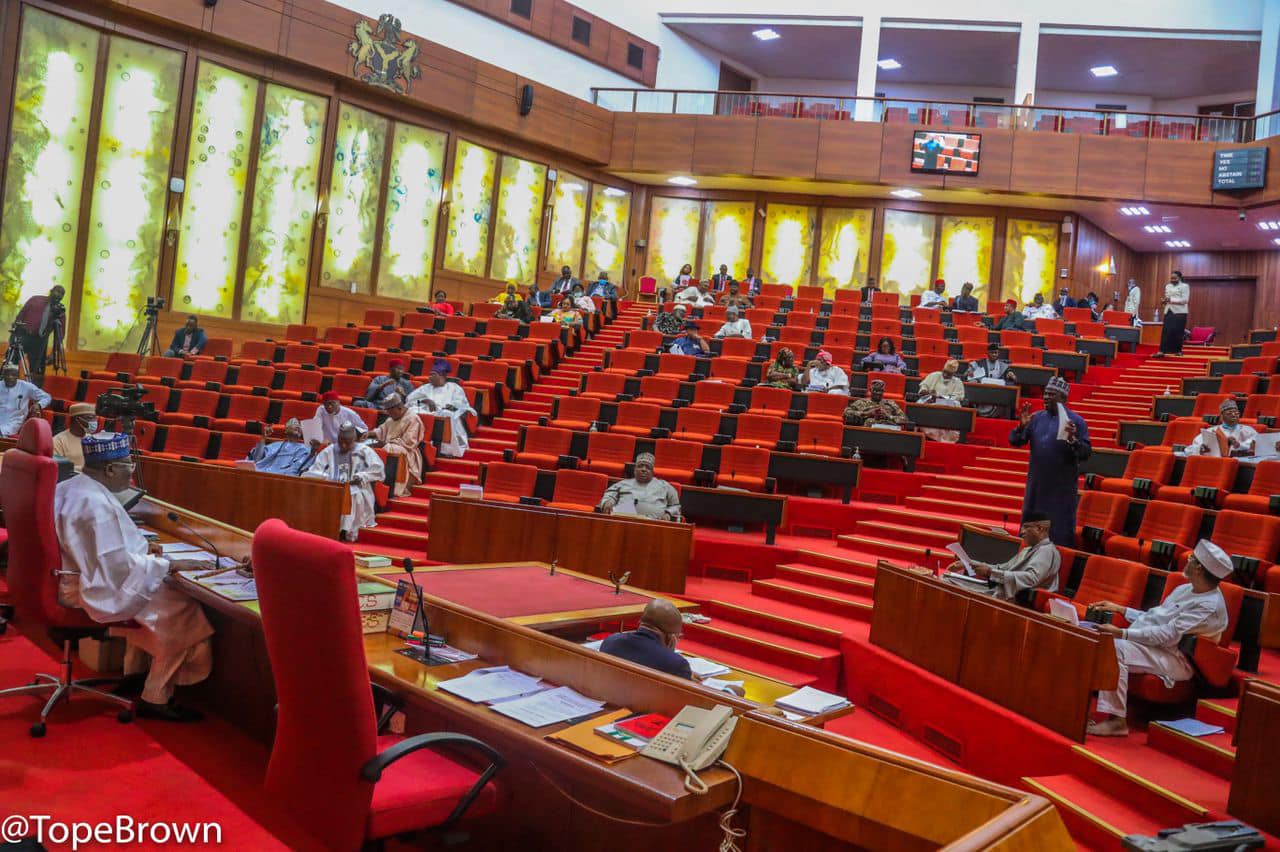A bill that is seeking to eliminate all forms of violence against persons, in private and public life, has scaled second reading at the Senate.
Sponsored by Senator Isah Jibrin Echocho, (APC) Kogi East, the Bill is entitled; A Bill for an Act to Repeal the Violence Against Persons (Prohibition) Act 2015, and Enact the Violence Against Persons (Prohibition) Bill, 2024 to eliminate violence in private and public life, prohibit all forms of violence against persons ad ttqqo provide maximum protection and effective remedies for victims and punishment of offenders; and for related matters, 2024 (SB. 368)
After the bill scaled second reading yesterday in the Senate, the President of the Senate, Senator Godswill Akpabio, referred it to the Senator Mohammed Monguno, APC, Borno North led Senate Committee on Judiciary, Human Rights and Legal Matters to report back in six weeks.
In his lead debate on the general principles of the bill, Senator Echcho said,

“Due to the far-reaching nature of this Bill, let me crave your indulgence to extensively highlight the background, which I believe will not only provide a proper context for this legislative initiative, but also motivate the National Assembly to accelerate the legislative process in enacting this Bill.
“This Act was enacted in 2015 against the backdrop of the rising cases of violence, especially domestic violence against women.
“The initial Bill sought protection for women from (male domination) violence. In the face of opposition to its obvious gender bias nature, the promoters renamed it, tinkered with some of its provisions, introduced seemingly gender-neutral language, and successfully obtained its passage.
“It’s explanatory memorandum states that it prohibits all forms of violence against persons in private and public life and provides protection and remedies for victims and punishment of offenders. Upon close scrutiny of the Act, it becomes obvious that it contains provisions that are inimical to the realisation of its objectives.
“Going through the provisions of the Act, it is obvious that it is plagued by substantial and drafting challenges. This underscores the necessity for a holistic reform of the Act to bring the provisions in line with the realities of societal change and drafting standards to effective dispensation of justice.
Some of the major areas of concern in the Act according to him, included several strict liability offences in the Act.
“These are instances where mental element (mens rea) is not needed, but only the physical element, which is all required to complete the offence. This therefore calls for a review to introduce elements of intention.
“The punishments of fine and imprisonment in the Act have become infinitesimal to have meaningful deterrent effect. This is particularly so in view of the current economic realities in Nigeria.
“In section 1 of the Act, the offence of rape needs particular attention. There is need to make a distinction between absence of consent, and consent obtained by fraud, undue influence, and other unlawful means.
“The Act contains inadequate provisions for compensation of the victims of violence. The penal focus is on fines and imprisonment, with little on compensation. In addition to the punishments, it is better, by way of reparation for victims, to make adequate provisions relating to compensation.
“The grievous nature of the certain offences in Act, especially section 22(1), makes the punishment provided inadequate. In view of the rampant cases of chemical attacks, such as acids and other substances, offenders under this section should not be given an option of fine. Similarly, the term of imprisonment needs an upward review.
“The Act does not create a Victims Support Fund to cater for victims of violence, and provide for its composition, funding and management.
“Section 27 of the Act, which vests jurisdiction in the High Court of the Federal Capital Territory, creates crisis of interpretation. Under the provision, the High Court of the Federal Capital Territory needs to be “empowered by an Act of Parliament” to exercise jurisdiction. This is certainly not the legislative intent therein. Consequently, the component requiring empowerment by an Act of Parliament is unnecessary. There are instances of derogatory expressions in the Act. An example is “mentally retarded” used in section 28(4). This needs to be replaced with a subtle legislative language.
“There are many cases of wrong cross referencing in the Act. The implication is that the operators of the Act run into difficulties when it comes to implementation. This opens a floodgate of litigation, which can be avoided by legislative option.
“The use of the terms “shall” and “may” in some sections of the Act do not convey legislative intent. Those terms are used haphazardly without due consideration of their outcomes. For example, in section 33(1), it is provided that “Whenever a court issues a protection order, the court shall make an order- (a) authorizing the issue of a warrant for the arrest of the respondent, in the prescribed form; and (b) suspending the execution of such warrant subject to compliance with any prohibition, condition, obligation or order imposed under section 31 of this Act.” The implication of the use of “shall” is a mandatory effect, which could not have been the legislative intent. The word “may” is more appropriate in the circumstance.
“In section 34, a strange “commissioner” is introduced for the purpose of making an application for variation or setting aside of a protection order. This riddles the provision with confusion, as ‘commissioner’ does not appear anywhere before and after this section. Besides, ‘commissioner’ is not defined in the interpretation section.
“The Act makes reference to legislations that are already repealed. An example is section 40, which makes reference to the Companies and Allied Matters Act, 1990. The current law is Companies and Allied Matters Act, 2020.
“This Act is notable for its innovations towards addressing violence in all ramifications. However, the several challenges and inadequacies inherent in it, call for urgent legislative action to reposition the legislation for efficiency.




